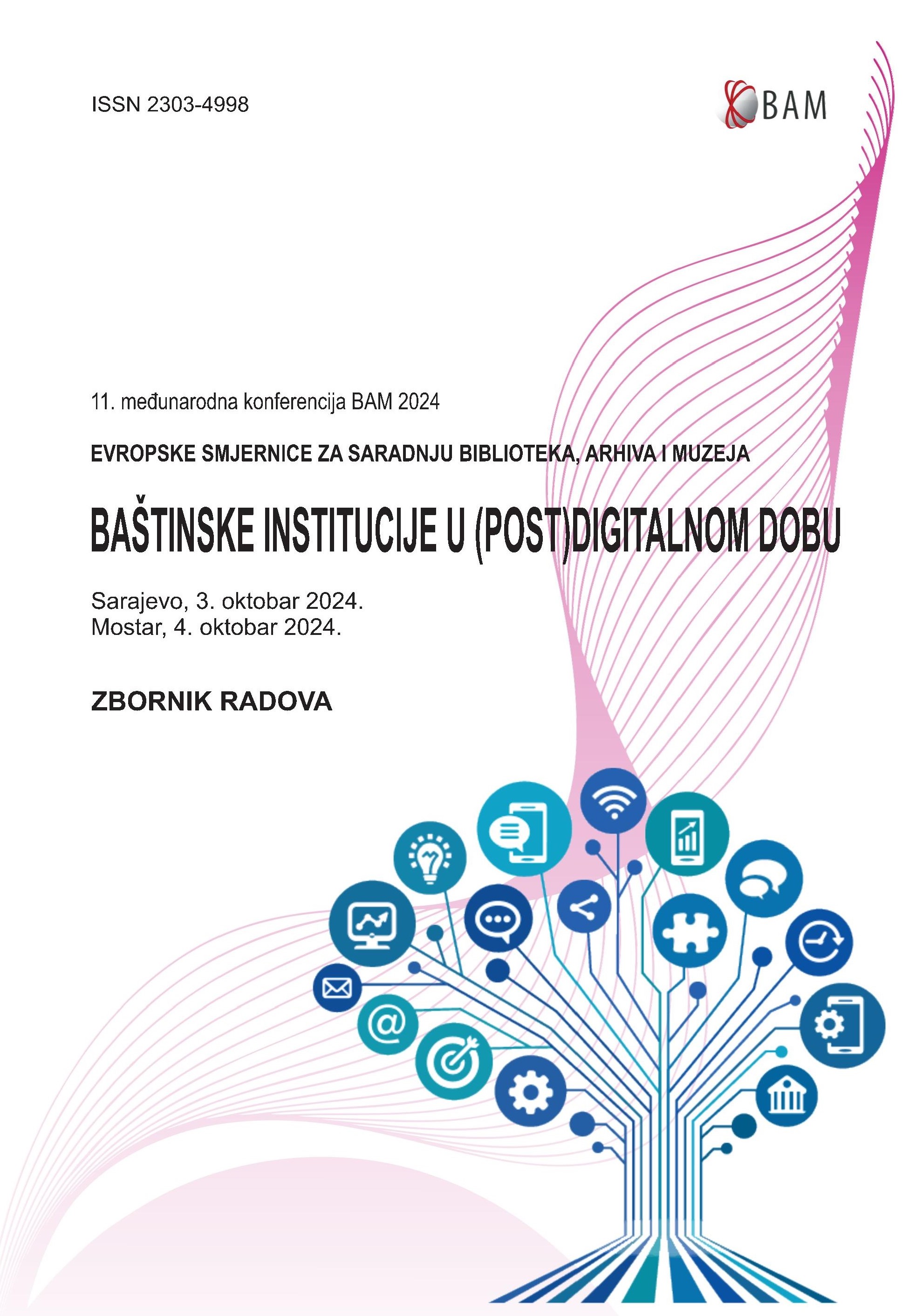Sanjaju li androidi električne bibliotekare/ke? Primjena AI tehnologija u nacionalnim bibliotekama Evrope
Do Androids Dream of Electronic Librarians? Application of AI Technologies in the National Libraries Across Europe
Author(s): Dalila MirovićSubject(s): Library and Information Science, Archiving, Cataloguing, Preservation
Published by: Asocijacija informacijskih stručnjaka – bibliotekara, arhivista i muzeologa
Keywords: national libraries; European national libraries; AI technologies; AI labs; automatic classification; automatic subject indexing; Annif, digital libraries; digital humanities;
Summary/Abstract: Goal: The goal of this research is to provide an overview of the application of artificial intelligence (AI) technologies in national libraries across Europe, with a focus on the use of machine learning for (semi)automated classification and indexing, digital humanities projects, and innovative methods for the preservation and presentation of cultural heritage. The study aims to encourage interest among the professional and academic librarian communities in the possibilities offered by these technologies. Design/methodology/approach: This research employs a descriptive method to present the application of AI technologies in national libraries. Comparative, analytical, and synthetic methods were used to inductively develop theoretical frameworks related to the subject of the research. Examples were analyzed from the practices of national libraries in Finland, Sweden, Norway, Germany, Spain, France, Netherlands, Scotland, Luxembourg and Great Britain. Results: Findings of the research indicate that national libraries are utilizing AI technologies for automated classification, indexing, language model development, and digital humanities projects. National libraries in Finland and Germany are leading in the implementation of machine learning for automatic classification and subject indexing, while projects like the British Library’s “Living with Machines” showcase innovative AI applications in researching cultural change. Discussion: The implementation of AI technologies in national libraries has numerous advantages; their AI labs provide a platform for the development and testing of new technologies, while language models they develop enable deeper and richer interaction with collections. Digital humanities projects demonstrate how AI can aid in the preservation and exploration of cultural heritage, but they require an interdisciplinary approach and collaboration among various experts. Originality/value: This research is among the first to examine the application of AI technologies in national libraries across Europe, offering a comprehensive over- view of the current state and providing a foundation for future research in this field. The study demonstrates how AI technologies can transform the operations of national libraries and enhance the preservation and accessibility of cultural heritage.
Journal: Zbornik Radova – Asocijacija informacijskih stručnjaka, bibliotekara, arhivista i muzeologa (BAM)
- Issue Year: 2025
- Issue No: 11
- Page Range: 185-213
- Page Count: 29
- Language: Bosnian

